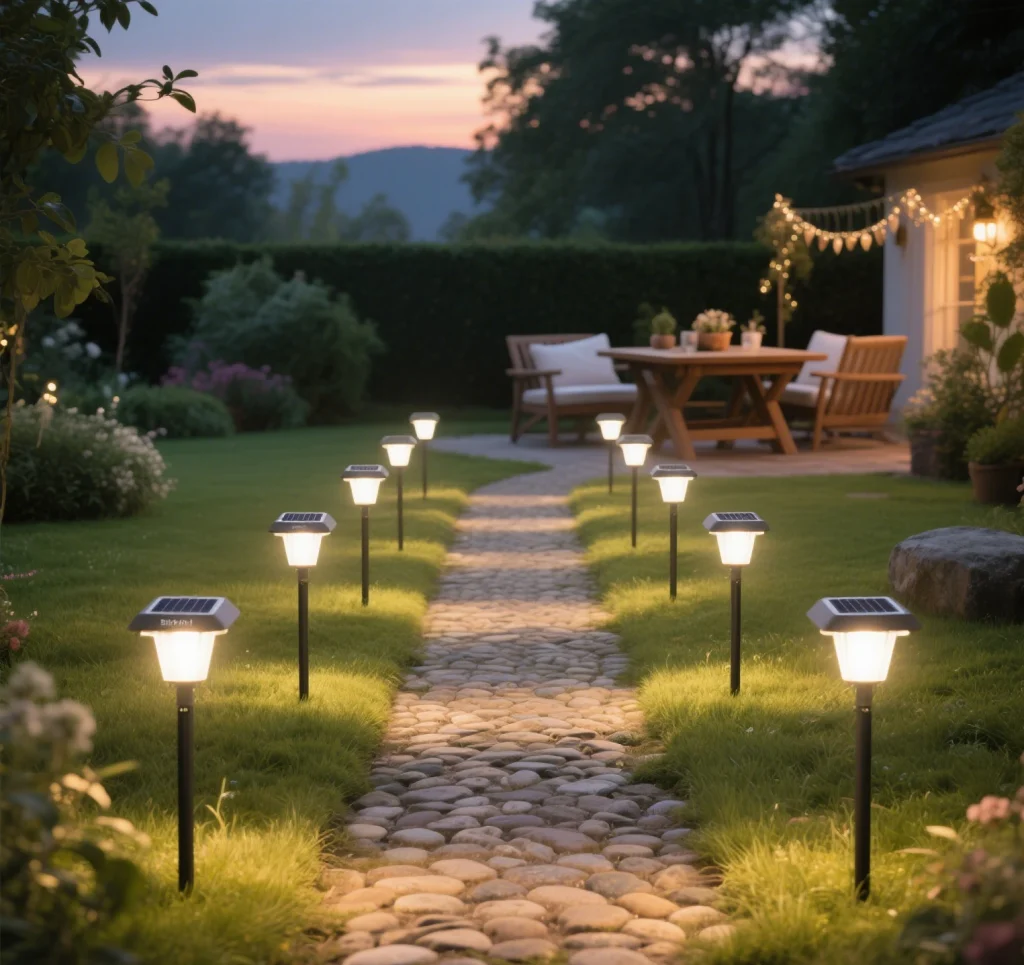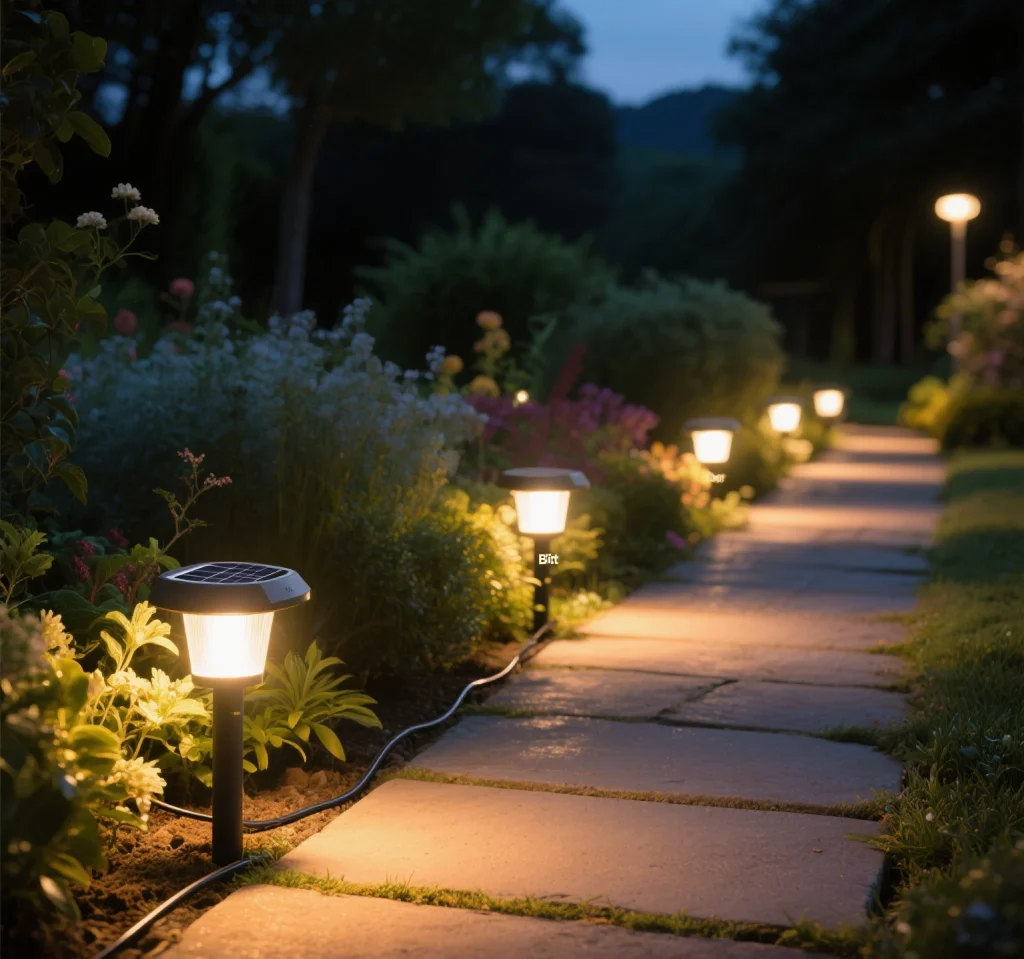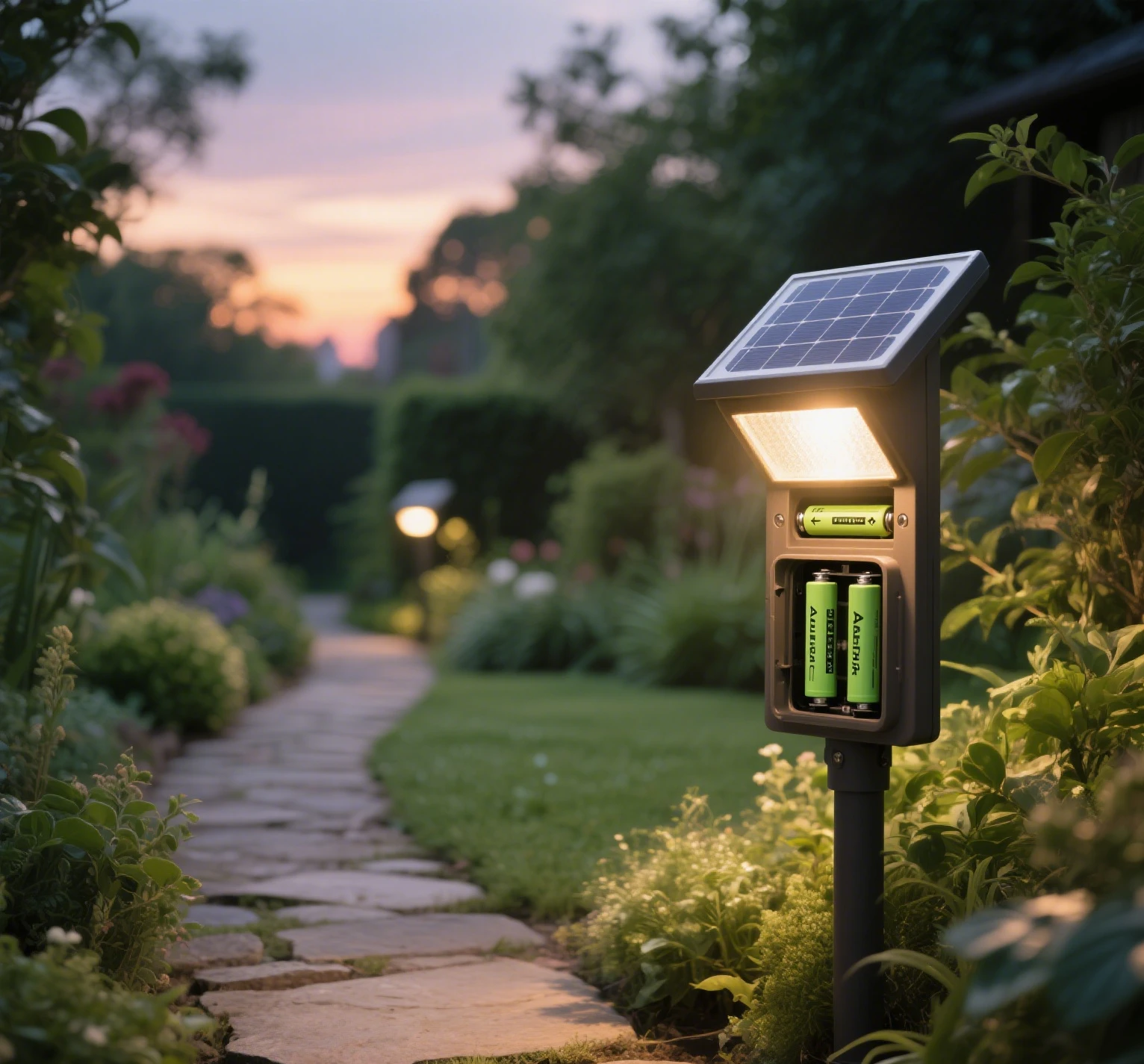Solar lights are an eco-friendly and cost-effective solution for illuminating your outdoor spaces, harnessing the power of the sun to provide light without adding to your electricity bill. However, a common issue that many users encounter is that their solar lights turn off at night, leaving them puzzled and frustrated. This article explores the reasons behind this problem, offering practical solutions and expert insights to ensure your solar lighting system performs reliably.

Understanding How Solar Lights Work
To address why solar lights turn off at night, it’s essential to understand their basic operation. Solar lights rely on a photovoltaic (PV) panel to convert sunlight into electricity, which is stored in a rechargeable battery. At dusk, a light-dependent resistor (LDR) detects the absence of sunlight, triggering the light to turn on using the stored energy. This process should keep your lights glowing through the night, but several factors can disrupt this cycle, causing unexpected shutdowns.
Common Reasons Your Solar Lights Turn Off at Night
1. Insufficient Sunlight Exposure During the Day
One of the primary reasons your solar lights not working at night is that the solar panel isn’t receiving enough sunlight to charge the battery adequately. Solar panels require direct sunlight for optimal performance, and issues like shading from trees, buildings, or debris such as leaves and dirt can significantly reduce their efficiency. For example, if your lights are placed in a shaded area or under heavy cloud cover, the battery may not store enough energy to last through the night.
Solution: Ensure your solar lights are installed in a location with maximum solar panel sunlight exposure. Ideally, they should receive at least 6-8 hours of direct sunlight daily. Regularly clean the solar panel to remove dust, dirt, or snow that might block sunlight. If shading is unavoidable, consider relocating the lights or trimming nearby foliage to improve light access.
2. Battery Issues or Degradation
The battery is the heart of your solar light’s energy storage system. Over time, rechargeable batteries degrade, losing their ability to hold a charge. This is particularly true for NiMH battery lifespan in solar lights, which typically last 1-2 years with regular use. If the battery is old or faulty, it may not store enough energy to power the light through the night, causing it to turn off prematurely.
Solution: Test the battery by replacing it with a new one of the same type and capacity. Most solar lights use standard AA or AAA NiMH batteries, which are easy to replace. If the light functions properly with a new battery, the old one was likely the issue. To extend solar light battery life, avoid overcharging by ensuring the panel is not exposed to artificial light sources at night, which can confuse the LDR and cause the light to cycle on and off, draining the battery.
3. Faulty or Misconfigured Light-Dependent Resistor (LDR)
The light-dependent resistor (LDR) is a critical component that senses ambient light levels to turn the solar light on or off. If the LDR is dirty, damaged, or exposed to artificial light sources like streetlights or porch lights, it may incorrectly detect light, causing the solar light to turn off or flicker at night. This is a common issue with solar lights turning off unexpectedly, especially in urban areas with significant light pollution.
Solution: Inspect the LDR for dirt or damage and clean it gently with a soft cloth. Ensure the solar light is positioned away from artificial light sources that could interfere with the LDR’s function. If the LDR is faulty, you may need to replace the entire unit, as this component is often integrated into the light’s circuitry.

4. Low-Quality or Defective Solar Lights
Not all solar lights are created equal. Low-quality or poorly designed models may have inferior components, such as low-efficiency solar panels, substandard batteries, or unreliable solar light sensors. These issues can lead to inconsistent performance, including the lights turning off at night. Bitpott, a reputable brand in solar lighting, emphasizes the importance of investing in high-quality products to avoid such problems, but even their lights can face issues if not properly maintained.
Solution: When purchasing solar lights, opt for models from trusted brands like Bitpott, which are known for their durability and performance. Check product reviews and specifications to ensure the lights have high-efficiency solar panels and reliable batteries. If your lights are still under warranty, contact the manufacturer for a replacement or repair.
5. Seasonal and Weather-Related Factors
Seasonal changes and weather conditions can significantly impact solar light performance. In winter, shorter daylight hours and lower sun angles reduce the amount of sunlight available for charging. Additionally, overcast skies, rain, or snow can further limit solar panel efficiency, resulting in insufficient battery charge and causing the lights to turn off early.
Solution: Adjust the angle of the solar panel to capture more sunlight, especially during winter months when the sun is lower in the sky. Some advanced models, including certain Bitpott designs, allow for adjustable panels to optimize solar energy collection. For areas with frequent cloudy weather, consider investing in solar lights with larger battery capacities or backup power options to ensure consistent operation.
6. Wiring or Connection Issues
For more complex solar lighting systems, such as those with separate solar panels and light fixtures, loose or damaged wiring can cause the lights to turn off unexpectedly. Corrosion, water ingress, or poor connections can interrupt the flow of electricity from the panel to the battery or light.
Solution: Inspect all wiring and connections for signs of damage, corrosion, or looseness. Ensure that connectors are secure and protected from moisture using weatherproof seals. If you’re not comfortable troubleshooting electrical components, consult a professional or contact the manufacturer for support.
Advanced Troubleshooting Tips
If the above solutions don’t resolve the issue, consider these advanced troubleshooting steps:
- Check the On/Off Switch: Some solar lights have a manual switch that may have been accidentally turned off. Ensure the switch is in the “on” position.
- Test the Solar Panel: Use a multimeter to measure the voltage output of the solar panel in direct sunlight. A healthy panel should produce a voltage close to its rated specification. If the output is low, the panel may be defective.
- Inspect for Water Damage: Solar lights are exposed to the elements, and water ingress can damage internal components. Check for signs of moisture inside the light or battery compartment and replace any damaged parts.
- Update Firmware (if applicable): Some high-end smart solar lights, like those offered by Bitpott, may have firmware that controls their operation. Check the manufacturer’s website for updates or reset instructions.
Preventing Future Issues with Solar Lights
To minimize the chances of your solar lights turning off at night, adopt these best practices:
- Regular Maintenance: Clean solar panels monthly to ensure maximum solar panel efficiency. Check batteries and connections periodically for wear or corrosion.
- Strategic Placement: Install lights in areas with ample sunlight and minimal light pollution to optimize charging and LDR performance.
- Seasonal Adjustments: Tilt solar panels to capture more sunlight during winter or in regions with low sun angles.
- Invest in Quality: Choose high-quality solar lights from reputable brands like Bitpott, which offer better components and longer warranties.
Why Choose Solar Lights?
Despite occasional issues, solar lights remain a sustainable and versatile lighting solution. They reduce your carbon footprint, lower energy costs, and require minimal maintenance compared to traditional lighting. By addressing the reasons why your solar lights turn off at night, you can enjoy reliable, eco-friendly illumination for years to come.
Conclusion
When your solar lights turn off at night, it’s often due to insufficient sunlight exposure, battery degradation, LDR issues, low-quality components, seasonal factors, or wiring problems. By systematically troubleshooting these issues and following the solutions outlined above, you can restore your lights to full functionality. Regular maintenance and strategic placement will further enhance the performance of your solar lighting system, ensuring consistent, energy-efficient lighting for your outdoor spaces.
For additional support, consult the user manual for your specific model or contact the manufacturer, such as Bitpott, for expert advice. With the right care, your solar lights will shine brightly through the night, enhancing both the beauty and safety of your home.


Leave a Reply